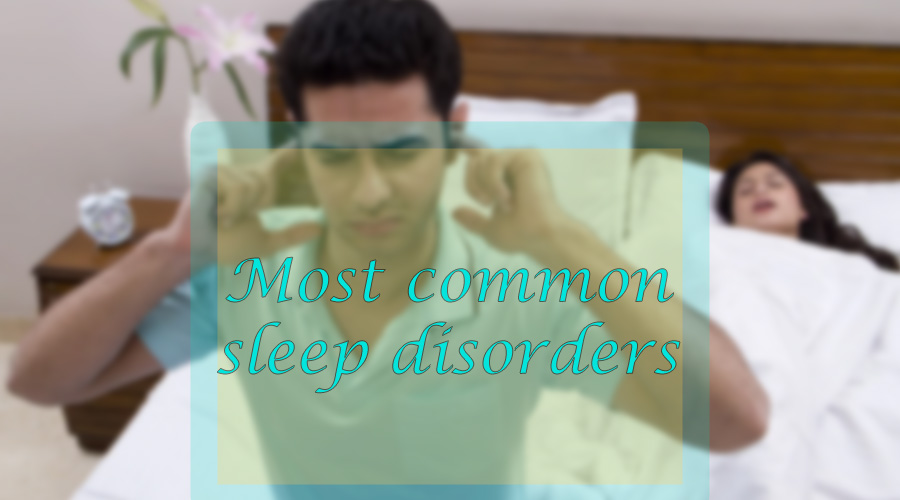Did you know that an estimated 50-70 million adults in the United States have a sleep disorder? This means that if you are one of them, you are not alone! In this blog post, we will discuss the most common sleep disorders and how to treat them. Keep reading to learn more!
Table of Contents
What are sleep disorders?
Sleep disorders are a group of conditions that affect the ability to sleep well on a regular basis. Many people with sleep disorders have trouble falling asleep, staying asleep, or both. As a result, they may get too little sleep or have poor-quality sleep.

There are many different types of sleep disorders, and they can affect anyone at any age. However, some people are more likely to have a sleep disorder than others. For example, people who work shifts or travel frequently are more prone to sleep disorders because their routines are disrupted. Other groups of people who are more likely to have a sleep disorder include:
- People with mental health conditions such as depression or anxiety
- Older adults
- Children and adolescents
- Pregnant women
- People who use alcohol or drugs
If you think you may have a sleep disorder, it is important to see a doctor for diagnosis and treatment.
Sleep disorders causes
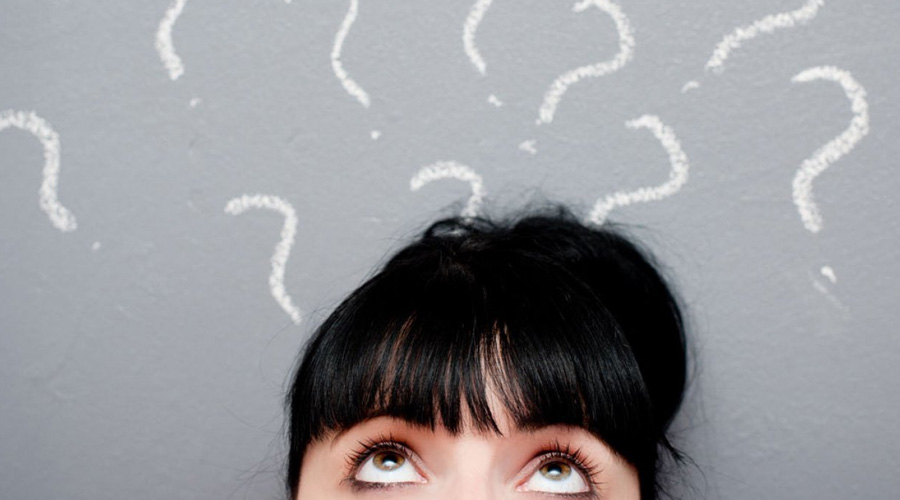
There are many different causes of sleep disorders. In some cases, a sleep disorder can be caused by another condition. For example, sleep apnea is often caused by obesity. Other times, a sleep disorder may be the result of a medication you are taking or a lifestyle factor such as stress. Sleep deprivation is also another major cause that could greatly affect both our physical and mental health.
Sleep disorders symptoms
The symptoms of sleep disorders vary depending on the type of disorder. However, there are some common symptoms that can be seen in most types of sleep disorders. These include:
- Difficulty falling asleep
- Waking up frequently during the night
- Feeling tired during the day
- Difficulty concentrating
- irritability
If you are experiencing any of these symptoms, it is important to see a doctor so you can get a proper diagnosis and treatment.
Types of sleep disorders

There are many different types of sleep disorders, but some of the most common ones include:
- Insomnia: This is the most common type of sleep disorder and it refers to difficulty falling asleep or staying asleep. People with insomnia often feel tired during the day and may have trouble concentrating.
- Sleep apnea: This is a condition in which people stop breathing for short periods of time during sleep. It can cause loud snoring and daytime fatigue.
- Restless legs syndrome: This is a condition in which people have an irresistible urge to move their legs, often accompanied by unpleasant sensations. It can make it difficult to fall asleep and stay asleep.
- REM sleep behavior disorder: It is a condition in which a person acts their dream out, whether it’s a simple, dramatic, or violent dream.
If you think you may have a sleep disorder, it is important to see a doctor. Sleep disorders can lead to serious health problems, including heart disease, stroke, and diabetes. They can also affect your quality of life.
Insomnia
Insomnia is the most common type of sleep disorder and it refers to difficulty falling asleep or staying asleep. People with insomnia symptoms often feel tired during the day and may have trouble concentrating. There are many different treatments for insomnia, including medication, behavioral therapy, and relaxation techniques.
Insomnia can be classified into two classifications: primary and secondary.
Primary insomnia is the most common type of insomnia and it refers to difficulty falling asleep or staying asleep that does not have an underlying cause. Secondary insomnia is caused by another condition, such as sleep apnea or restless legs syndrome.
There are many different treatments for insomnia, including medication, behavioral therapy, and relaxation techniques. If you are experiencing difficulty sleeping, it is important to see a doctor for diagnosis and treatment.
There are four types of insomnia:
- transient insomnia, which is the most common type and lasts for less than one week
- short-term insomnia, which lasts for one to two weeks
- chronic insomnia, which lasts for more than three weeks
- comorbid insomnia, which is a rare type that occurs alongside another condition, such as depression or anxiety
People with insomnia often have difficulty falling asleep and staying asleep. They may experience excessive daytime sleepiness and have trouble concentrating.
Narcolepsy
Narcolepsy is a condition that causes people to fall asleep suddenly and unexpectedly during the day. It can also cause hallucinations and sleep paralysis. Narcolepsy is treated with medication and lifestyle changes.
There are three types of narcolepsy:
- type 1, which is caused by a lack of hypocretin
- type 2, which is most common and is caused by a combination of factors, including genetics and environmental factors
- chronic hypersomnia is a rare form of narcolepsy that causes people to sleep for long periods of time
Narcolepsy is treated with medication and lifestyle changes. If you are experiencing sudden and unexpected sleep during the day, it is important to see a doctor for diagnosis and treatment.
If you are experiencing sudden, unexpected bouts of sleep during the day, it is important to see a doctor. Narcolepsy can be a serious condition that affects your quality of life.
Parasomnias
Parasomnias are a group of conditions that cause unusual behaviors during sleep. Examples of parasomnias include sleepwalking, sleep talking, and night terrors. Parasomnias are usually not harmful, but they can be disruptive to your sleep.
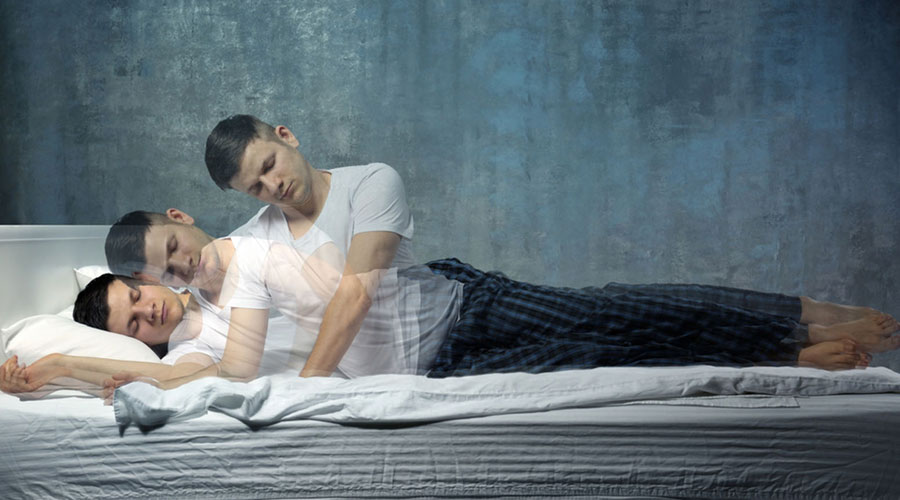
If you are experiencing any unusual behaviors during sleep, it is important to see a doctor. Parasomnias can be disruptive to your sleep and may cause you to feel tired during the day.
Sleep disorders are common and can cause serious health problems. If you think you may have a sleep disorder, it is important to see a doctor for diagnosis and treatment. There are many different types of sleep disorders, but some of the most common ones include insomnia, sleep apnea, and restless legs syndrome. Each sleep disorder has its own set of symptoms and treatment options.
Fibromyalgia
Fibromyalgia is a condition that causes pain, fatigue, and sleep problems. Fibromyalgia is treated with medication, lifestyle changes, and relaxation techniques.
There are three types of fibromyalgia:
- primary fibromyalgia, which is the most common type and is characterized by pain in the muscles and joints
- secondary fibromyalgia, which is caused by another condition, such as rheumatoid arthritis or lupus
- post-traumatic fibromyalgia is a rare type that develops after an injury or trauma
Fibromyalgia is treated with medication, lifestyle changes, and relaxation techniques. If you are experiencing pain, fatigue, or sleep problems, it is important to see a doctor for diagnosis and treatment.
If you are experiencing pain, fatigue, or sleep problems, it is important to see a doctor for diagnosis and treatment. Fibromyalgia can be a debilitating condition that affects your quality of life.
Sleep paralysis
Sleep paralysis is a condition that causes people to feel like they are awake but unable to move. Sleep paralysis can be caused by sleep apnea, narcolepsy, or stress. It is treated with medication and lifestyle changes.
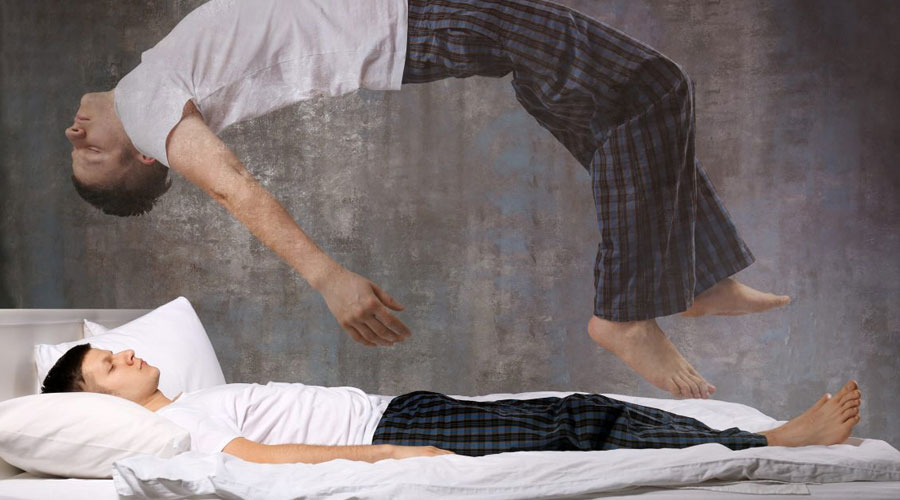
There are three types of sleep paralysis:
- isolated sleep paralysis, which is the most common type and is caused by a temporary disruption in the brain’s ability to send signals to the muscles
- recurrent isolated sleep paralysis, which is a rare type that causes people to experience sleep paralysis again and again
- complex sleep paralysis, which is a rare type that is caused by another condition, such as narcolepsy or sleep apnea
Sleep paralysis can be caused by a variety of factors, including sleep apnea, narcolepsy, stress, and other medical conditions. It is treated with medication and lifestyle changes. If you are experiencing difficulty moving or feeling awake during sleep, it is important to see a doctor for diagnosis and treatment.
If you are experiencing sleep paralysis, it is important to see a doctor for diagnosis and treatment. Sleep paralysis can be a frightening experience, but it is not harmful.
Restless legs syndrome
Restless legs syndrome (RLS) is a condition that causes people to feel an irresistible urge to move their legs. Restless legs syndrome can be caused by genetic factors, iron deficiency, and kidney problems. It is treated with medication and lifestyle changes.
There are four types of restless legs syndrome:
- primary restless legs syndrome, which is the most common type and is characterized by an irresistible urge to move the legs
- secondary restless legs syndrome, which is caused by another condition, such as iron deficiency or kidney disease
- periodic limb movement disorder, which is a rare type that causes people to experience repetitive leg movements during sleep
- Willis-Ekbom disease is a rare type that causes people to experience severe leg pain and cramping
Restless legs syndrome can be a debilitating condition that affects your quality of life. It is important to see a doctor for diagnosis and treatment. Treatment options include medication and lifestyle changes.
If you are experiencing an irresistible urge to move your legs, it is important to see a doctor for diagnosis and treatment. Restless legs syndrome can be a debilitating condition, but there are treatments available that can help improve your symptoms.
Snoring and sleep apnea
Snoring is a common problem that can be caused by a variety of factors, including obesity, smoking, and alcohol use. Sleep apnea is a serious condition that occurs when people stop breathing during sleep. It can be caused by obesity, heart disease, and stroke. Snoring and sleep apnea are treated with lifestyle changes and medical interventions. Snoring can be a sign of a more serious condition called sleep apnea.
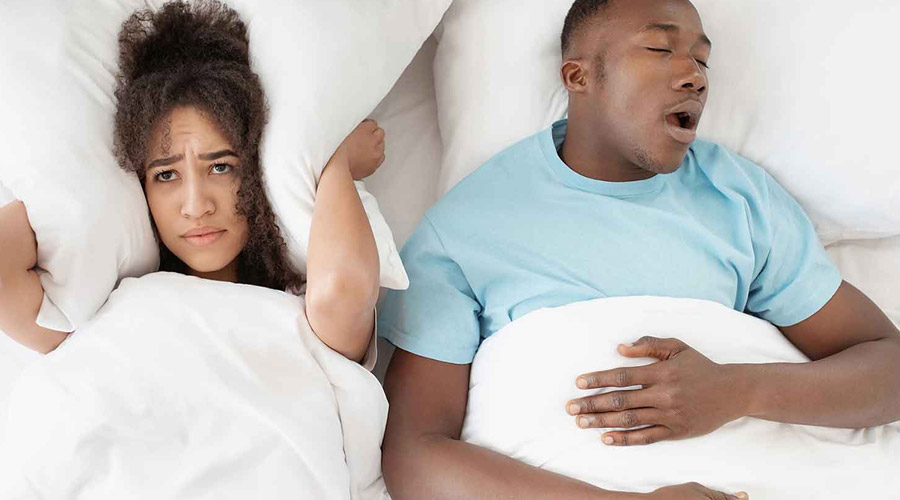
There are three types of sleep apnea:
- obstructive sleep apnea, which is the most common type and is caused by a blockage in the airway
- central sleep apnea, which is a rare type that is caused by problems with the brain’s ability to control breathing
- mixed sleep apnea, which is a rare type that is caused by a combination of obstructive and central sleep apnea
If you are snoring or have sleep apnea, it is important to see a doctor for diagnosis and treatment. Snoring and sleep apnea are treatable conditions that can improve your quality of life. Treatment options include lifestyle changes and medical interventions.
Seasonal affective disorder
The seasonal affective disorder is a type of depression that occurs during the winter months. It can be caused by a lack of sunlight, which affects the brain’s production of serotonin. The seasonal affective disorder is treated with light therapy, medication, and lifestyle changes.
There are four types of seasonal affective disorder:
- major depressive disorder with seasonal pattern, which is the most common type and is characterized by a depressed mood that occurs during the winter months
- bipolar disorder with seasonal pattern, which is a rare type that causes people to experience manic and depressive episodes in relation to the seasons
- cyclothymic disorder, which is a rare type that causes people to experience periods of hypomania and depression that are not related to the seasons
- seasonal pattern specifier, which is a rare type that causes people to experience symptoms of another mental disorder in relation to the seasons
If you are experiencing a depressed mood during the winter months, it is important to see a doctor for diagnosis and treatment. The seasonal affective disorder is a treatable condition that can improve your quality of life. Treatment options include light therapy, medication, and lifestyle changes.
Chronic fatigue syndrome
Chronic fatigue syndrome is a condition that causes people to experience extreme fatigue. It can be caused by a variety of factors, including viral infections, stress, and sleep disorders. Chronic fatigue syndrome is treated with medication, lifestyle changes, and cognitive-behavioral therapy.

There are four types of chronic fatigue syndrome:
- primary chronic fatigue syndrome, which is the most common type and is characterized by severe fatigue that does not improve with enough sleep and rest
- secondary chronic fatigue syndrome, which is a rare type that is caused by another condition, such as cancer or multiple sclerosis
- post-viral chronic fatigue syndrome, which is a rare type that occurs after a viral infection
- myalgic encephalomyelitis/chronic fatigue syndrome, which is a rare type that causes inflammation of the brain and spinal cord
If you are experiencing extreme fatigue and sudden muscle weakness, it is important to see a doctor for diagnosis and treatment. Chronic fatigue syndrome is a treatable condition that can improve your quality of life. Treatment options include medication, lifestyle changes, and cognitive-behavioral therapy.
Circadian rhythm disorders
Circadian rhythm disorders are conditions that cause people to experience a disruption in their natural sleep-wake cycle. They can be caused by a variety of factors, including jet lag, shift work, and daylight savings time. Circadian rhythm disorders are treated with medication, light therapy, and lifestyle changes.
There are four types of circadian rhythm disorders:
- delayed sleep phase disorder, which is the most common type and is characterized by a delay in the onset of sleep
- advanced sleep phase disorder, which is a rare type that is characterized by an early onset of sleep
- non-24-hour sleep-wake disorder, which is a rare type that occurs when a person’s sleep schedule does not match the 24-hour day
- irregular sleep-wake disorder, which is a rare type that is characterized by irregular sleeping and waking patterns
If you are experiencing a disruption in your natural sleep-wake cycle, it is important to see a doctor for diagnosis and treatment. Circadian rhythm disorders are treatable conditions that can improve your quality of life. Treatment options include medication, light therapy, and lifestyle changes.
Periodic limb movements of sleep
Periodic limb movements of sleep are repetitive movements that occur during sleep. They can be caused by a variety of factors, including medications, genetic disorders, and underlying medical conditions. Periodic limb movements of sleep are treated with medication, lifestyle changes, and surgery.
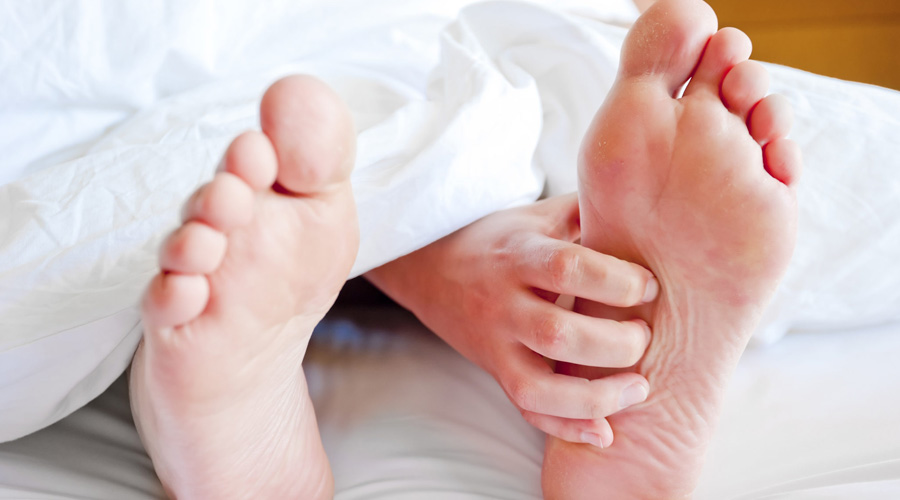
There are four types of periodic limb movements of sleep:
- primary periodic limb movements of sleep, which is the most common type and is not caused by another condition
- secondary periodic limb movements of sleep, which is a rare type that is caused by another condition, such as Parkinson’s disease or restless legs syndrome
- nocturnal myoclonus, which is a rare type that occurs when people experience muscle twitches during sleep
- paroxysmal dystonia, which is a rare type that causes people to experience muscle spasms during sleep
If you are experiencing repetitive movements during sleep, it is important to see a doctor for diagnosis and treatment. Periodic limb movements of sleep are a treatable condition that can improve your quality of life. Treatment options include medication, lifestyle changes, and surgery.
Diagnosing sleep disorders
If you are experiencing any of the symptoms of a sleep disorder, it is important to see a doctor for diagnosis and treatment. Sleep disorders are treatable conditions that can improve your quality of life. Treatment options include medication, lifestyle changes, and cognitive-behavioral therapy.

When you visit a doctor to get help for a sleep disorder, he or she will ask you about your symptoms and medical history. He or she may also perform a physical exam and order tests to help diagnose the condition. Some of the most common tests used to diagnose sleep disorders include:
- polysomnography, which is a test that is used to diagnose sleep apnea
- actigraphy, which is a test that is used to diagnose circadian rhythm disorders
- electromyography, which is a test that is used to diagnose periodic limb movements of sleep
- multiple sleep latency test, which is a test that is used to diagnose narcolepsy
If you are experiencing any of the symptoms of a sleep disorder, it is important to see a doctor for diagnosis and treatment. Sleep disorders are treatable conditions that can improve your quality of life. Treatment options include medication, lifestyle changes, and cognitive-behavioral therapy.
Treatment sleep disorders

There are many different treatment options available for sleep disorders. The most effective treatment plan will depend on the type of sleep disorder you have. Some of the most common treatments for sleep disorders include:
- medication or sleep medicine, such as hypnotics or tricyclic antidepressants
- light therapy, such as exposure to bright light during the day
- lifestyle changes, such as avoiding caffeine and alcohol or following a regular sleep schedule
- cognitive-behavioral therapy, which is a type of counseling that can help you change your thoughts and behaviors around sleep
If you are diagnosed with a sleep disorder, it is important to work with your doctor to develop a treatment plan that will work for you. Sleep disorders are treatable conditions that can improve your quality of life. With the right treatment, you can get the restful night’s sleep you need.
Bottom line
There are many different types of other sleep disorders, each with its own set of symptoms and treatment options. If you are experiencing any problems with sleeping, it is important to see a doctor for diagnosis and treatment. Sleep disorders are treatable conditions that can improve your quality of life. Treatment options vary depending on the type of sleep disorder but may include light therapy, medication, lifestyle changes, and surgery.
Sleep disorders are a common problem that can affect your sleep quality. There are many different types of sleep disorders, each with its own set of symptoms and treatment options. If you are experiencing any problems with sleeping, it is important to see a doctor for diagnosis and treatment. Sleep disorders are treatable conditions that can improve your quality of life. With the right treatment, you can get the restful night’s sleep you need.
Frequently asked questions
How many sleep disorders are there in total?
There are over 80 different types of sleep disorders. The most common sleep disorder is insomnia, which affects about 30% of adults. Treatment for a sleep disorder will vary depending on the type of disorder you have. Some common treatments include medication, light therapy, lifestyle changes, and surgery.
What percentage of the population has sleep disorders?
It is estimated that 50-70 million US adults have a sleep disorder. This includes conditions such as insomnia, sleep apnea, and restless legs syndrome. If you are experiencing any problems with sleeping, it is important to see a doctor for diagnosis and treatment.
Are sleep disorders rare?
No, sleep disorders are actually quite common. It is estimated that 50-70 million US adults have a sleep disorder. This includes conditions such as insomnia, sleep apnea, and restless legs syndrome. If you are experiencing any problems with sleeping, it is important to see a doctor for diagnosis and treatment.
How common are sleep disorders in the UK?
There is no exact number for how many people in the UK have sleep disorders, but it is estimated that around 30% of adults experience some form of sleep disturbance. This includes conditions such as insomnia, sleep apnea, and restless legs syndrome. If you are experiencing any problems with sleeping, it is important to see a doctor for diagnosis and treatment.
What are different types of sleeping problems?
There are over 80 distinct types of sleep problems. Insomnia is the most prevalent sleep problem, affecting about 30% of people. Sleep apnea, restless legs syndrome, and narcolepsy are other types of sleeping disorders. The treatment for a sleep problem will differ depending on the type of condition you have. Medication, light therapy, cognitive behavior therapy, behavioral modifications, and surgery are all common therapies.

